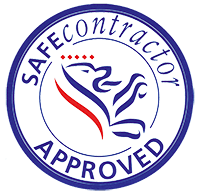That’s it; summer is just about done, the kids are about to go back to school and our Summer Plumbing Tips series is now complete! Over the last month we have been sharing a plumbing tip every day to help you stay on top of your home plumbing and heating including saving money, maintaining your plumbing and heating systems and preventing potential plumbing pitfalls.
If you followed them on social media we hope that you enjoyed them and learned something helpful. If you didn’t, or you missed a few, then here they are in full. You can also see them on Twitter and Facebook by following the hashtag #PlumbcareSummerPlumbingTips. We’ve even provided links to further information on most of these tips here.
If you have a specific issue that is not covered here then you may find the answer on our FAQ page or you can get in touch by sending us a message using the form to the right here or calling us on 0333 577 0151.
1. Turn your heating on for 15 minutes once a month over the summer to avoid issues turning it back on in the winter
2. It’s always a good idea to turn your water off at the stop tap when you go on holiday to prevent coming home to any possible floods and leaks
3. Install a Sure Stop remote stop tap if yours is difficult to access or to turn. See here for further details
4. Avoid putting fats or food waste down the sink drain as they could cause a blockage. Use a sink strainer to prevent solids being washed down. See here for further details
5. Clear drains periodically using a drain cleaner or even a homemade hack such as vinegar and bicarbonate of soda to keep them flowing well. See here for further details
6. Dripping tap? Isolate it by finding the valve underneath and giving it a ¼ turn so it runs in the opposite direction to the pipe
7. Check for outdoor water leaks by looking for damp patches on grass or soil when there has been no rain. If you find any, contact a plumber
8. If your radiators have cold spots this could be sludge in the system. A powerflush will usually remedy this. See here for more details
9. Worried about your home water pressure? Test it by running your tap on full into a jug for 6 seconds. Multiply the volume in litres by 10 to give you your flow rate per minute. Anything less than 10 is considered low. See here for further details
10. A ‘kettling’ noise in a boiler could be down to a build-up of limescale. Solutions can include replacing the heat exchanger, a powerflush or adding inhibitor to the boiler. See here for further details
11. To bleed radiators 1. Turn the heating off. 2. Find the bleed valve and key. 3. Open the bleed valve by inserting the key and turning anti-clockwise. 4. Close the bleed valve. 5. Turn the heating back on again
12. Check boiler cover policies carefully so you understand exactly what is covered and what is not. Things like the age and condition of your boiler, lack of maintenance and qualifying periods could all potentially invalidate claims. See here for further details
13. Worried you’re spending too much on heating? A Smart meter could help you understand your usage and help you manage it better
14. Avoid putting wipes or sanitary items down the toilet as they could cause a blockage, even if they claim to be flushable. See here for further details
15. Fixing leaky taps could prevent you wasting 60 litres of water per week. See here for further ideas on saving water
16. Is your toilet leaking? Add food colouring to the cistern and don’t flush for an hour. If the colour appears in the toilet bowl you have a leak. This is one of the most common reasons for high water consumption. See here for further details
17. Fix any broken grates outside your property and add drain covers. These will help prevent things falling in and blocking the drains. See here for further details
18. Consider having a boiler service in the summer rather than winter. It is usually less disruptive and often cheaper because heating engineers are less busy with breakdowns
19. Switch to a low flush toilet, or install a Cistern Displacement Unit (CDD), to reduce water used in flushing by more than half. See here for further ideas on saving water
20. Have your boiler serviced every year as this will keep it running efficiently (saving you money) and will extend the life of the boiler. See here for further details
21. Did you know, a power shower can use as much water as a bath? Install a water efficient aerator shower head to use less water without compromising pressure. See here for further details
22. Prevent sludge building up in your boiler by adding an inhibitor to the central heating system. See here for more details
23. Bad smells coming from sinks and toilets? You may have a drain blockage. Try clearing with a drain cleaner but if smells persist, call in a plumber who can deal with drainage issues. They will be able to investigate with CCTV. See here for further details
24. High water bills, mildew or mould in the home, bubbles in wallpaper or paint and damp smells can all be signs you have a leak somewhere. Call a plumber to investigate
25. Add an aerator to taps to reduce water usage by half. You can get one for free from Yorkshire Water as part of a water saving kit. See here for further ideas on saving water
26. Lag your condensate pipe outside ready for winter. This will stop it freezing in cold weather and causing the boiler to break down. See here for further details
27. To cure a hot water air lock in a mixer tap place your hand over the end of the tap, open the hot tap fully then open the cold tap forcing the cold water mains up the hot feed pipe pushing the air lock up into the tank to vent
28. Always turn the water off at the stop tap when conducting plumbing fixes. This will prevent any unexpected floods and leaks if all does not go to plan!
29. Bleed your radiators at the end of summer/beginning of autumn ready for turning the heating back on when the weather gets colder. See here for further details on how to bleed your radiators
30. Noisy pipes? This is known as water hammering. It can usually be stopped by installing water hammer arresters – contact your plumber
31. Check that your outside tap has its own isolator valve or stop tap that is separate from indoor water supply. This way you can switch it off in very cold weather to prevent pipes bursting. See here for information about installing a Sure Stop remote stop tap
We hope that you found these Summer Plumbing Tips useful.
Don’t forget that the Plumbcare.com blog is a hub of tips and advice for your
home plumbing so keep checking in, especially now we’re approaching autumn. Why
not start with getting your plumbing and heating ready for colder weather now?
Click here for details.
Never got round to having your boiler serviced at our discounted price? Don't worry - we can't make summer last any longer but we have extended our summer offer by another month meaning that you can still claim your £20 discount on a full boiler service until the end of September! Click here for more details.
Complete the form below and one of the Plumbcare.com team will get back to you as soon as possible.





